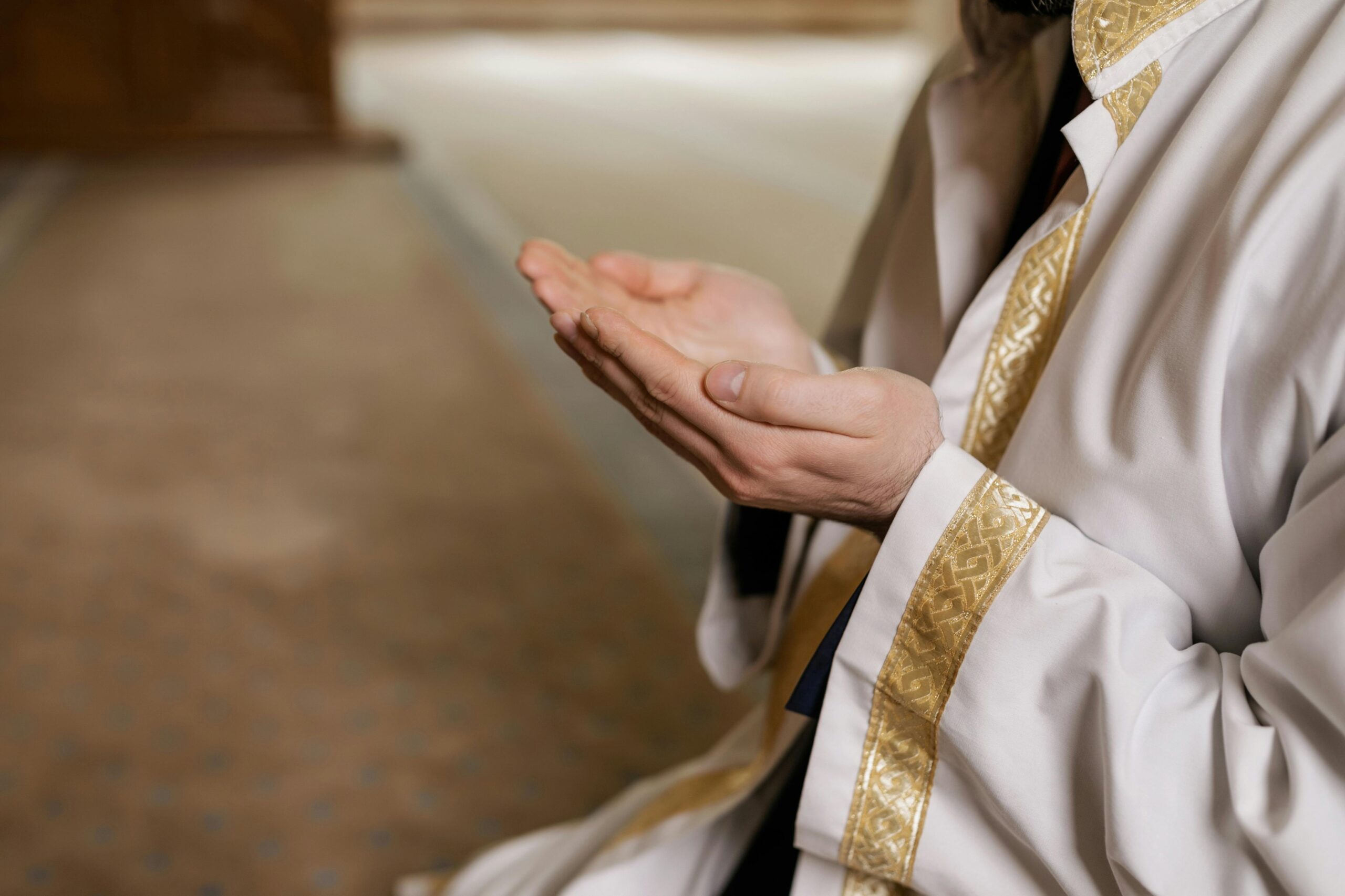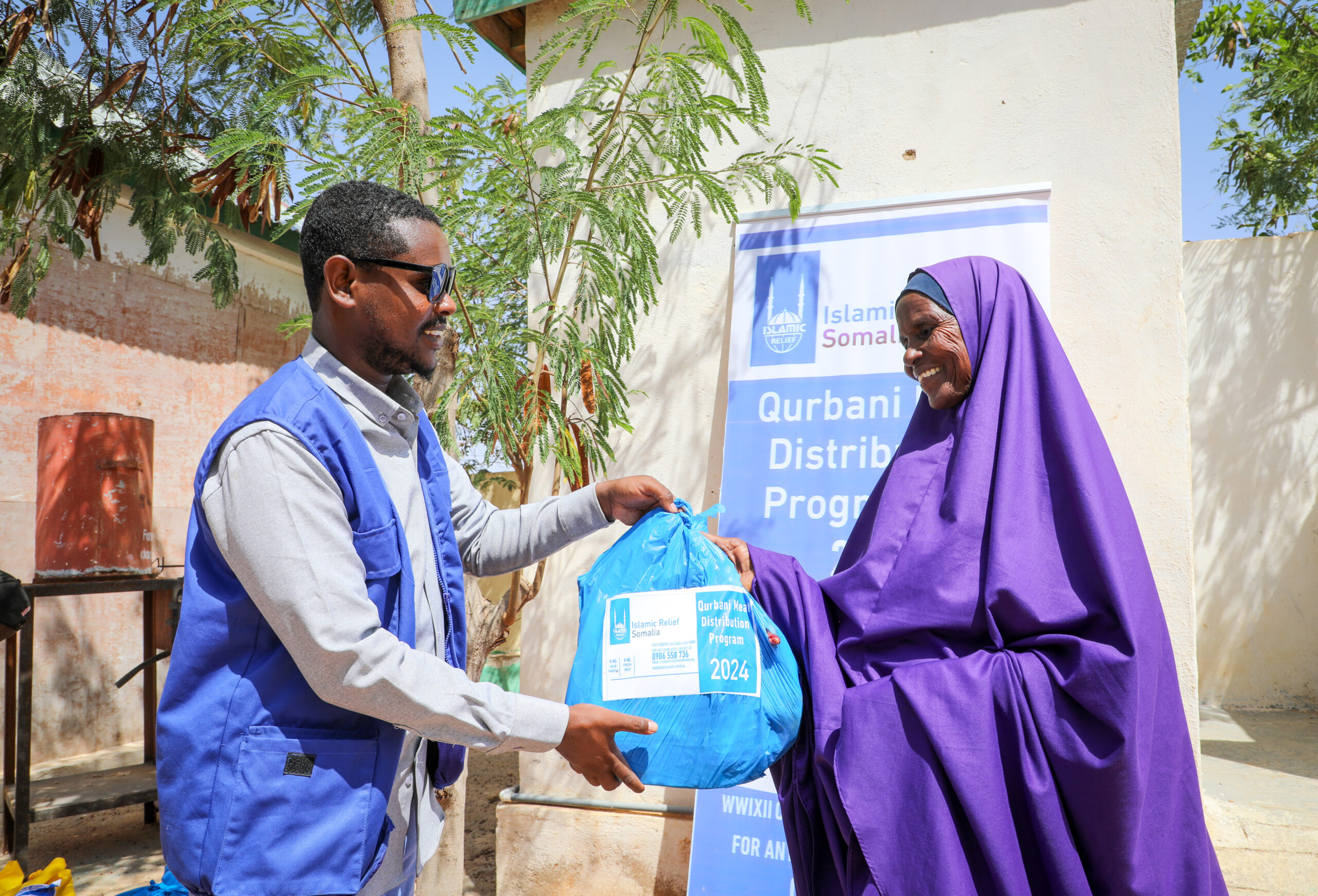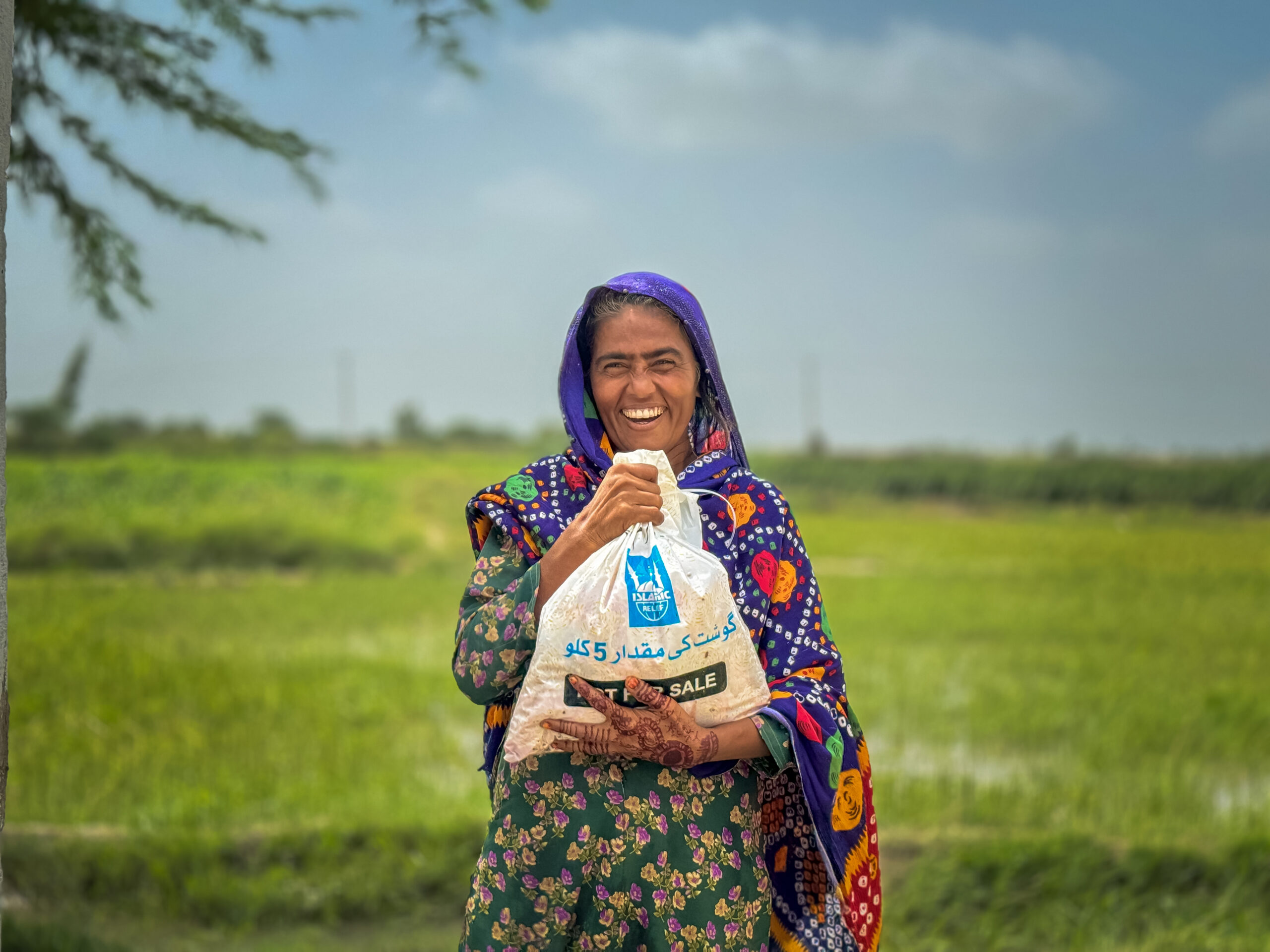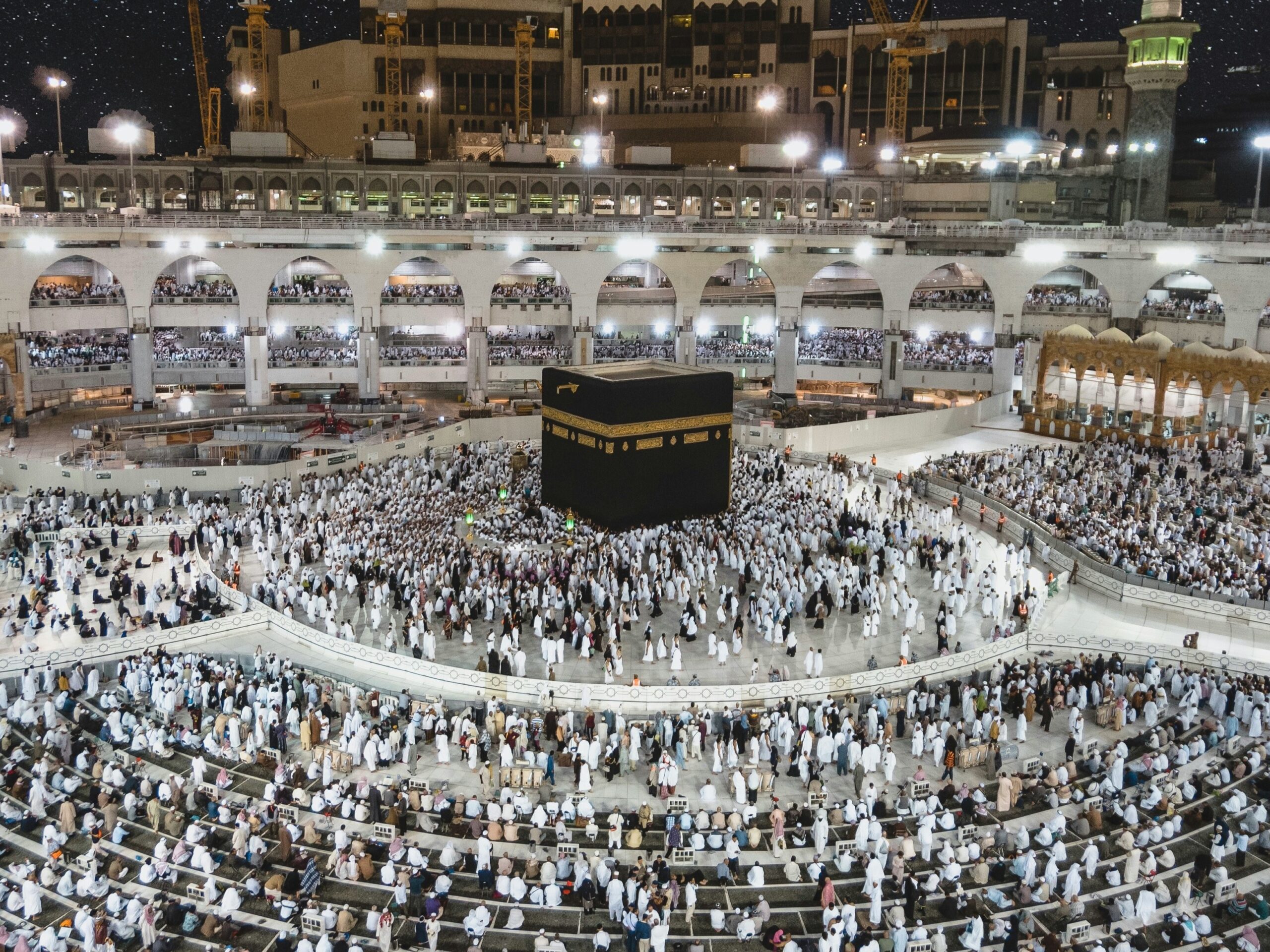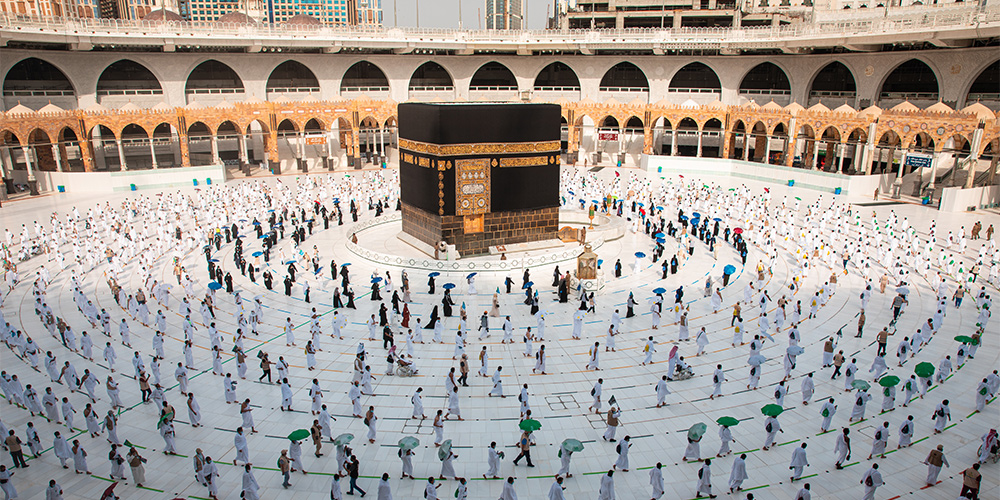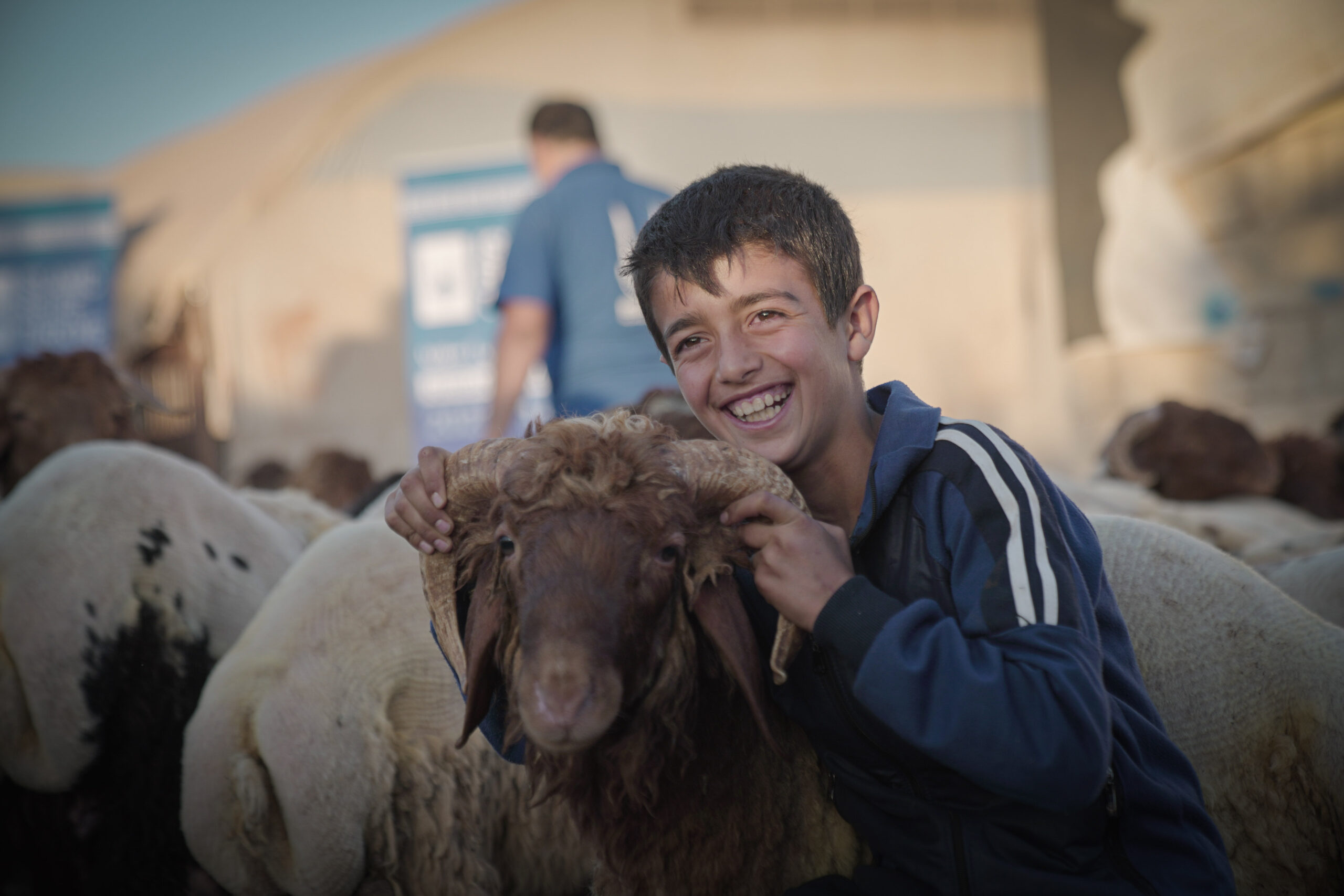
05.06.25
Qurban: Know the rules before Eid Al-Adha 2025
Giving Qurban is a sacred duty given by Allah (SWT). Every year, during Eid Al-Adha in Dhul Hijjah, Muslims worldwide engage in this important act of worship. One that reflects on Prophet Ibrahim (AS)’s devotion to Allah (SWT) and his ultimate sacrifice.
What is Qurban?
Qurban (also known as Qurbani or Udhiyah) means sacrifice. It refers to the slaughtering of an animal – typically a sheep, goat, camel, or cow – for the sake of Allah (SWT), during the days of sacrifice.
“That they may witness benefits for themselves and mention the name of Allah on known days over what He has provided for them of [sacrificial] animals. So eat of them and feed the miserable and poor.”
Quran 22:28
The ritual commemorates Prophet Ibrahim (AS)’s willingness to sacrifice his beloved son, Ismail (AS), for the sake of Allah (SWT), and both their steadfastness in carrying out this order from the Creator. Their story reminds us to trust in Allah (SWT) and know that He will help us overcome our hardships.
“Then when the boy reached the age to work with him, Ibrahim said, “O my dear son! I have seen in a dream that I ˹must˺ sacrifice you. So tell me what you think.” He replied, “O my dear father! Do as you are commanded. Allah willing, you will find me steadfast.”
Quran 37:102-109
Then when they submitted ˹to Allah’s Will˺, and Ibrahim laid him on the side of his forehead ˹for sacrifice˺, we called out to him, “O Ibrahim! You have already fulfilled the vision.”
Indeed, this is how We reward the good-doers. That was truly a revealing test. And We ransomed his son with a great sacrifice, and blessed Ibrahim ˹with honourable mention˺ among later generations: “Peace be upon Ibrahim.”
Qurban is usually carried out after Eid prayer, on the first day of Eid Al-Adha. But it can also be performed on 11th, 12th and 13th of Dhul Hijjah. Once the sacrifice is completed, the animal’s meat is then divided into three equal portions. One-third is shared with the needy, one-third is distributed to relatives and neighbours, and the remainder is kept for one’s own family.
Eid al-Adha 2025 will fall on Friday, 6 June, 2025, depending on the moon sighting. It takes place in the twelfth and final month of the Islamic calendar, Dhul Hijjah.
What are the rules of Qurban?
Who needs to give Qurbani? When do we offer our sacrifice? Are there any other things we need to take into consideration?
Worry not! We’ve put together everything you need to know about this sacred sacrifice.
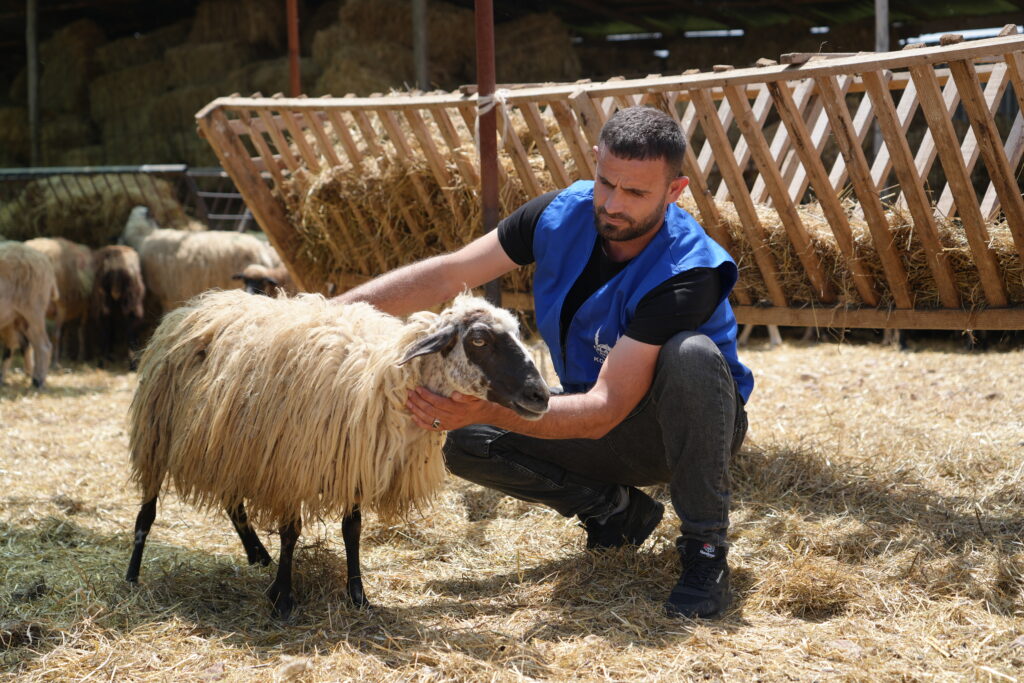
Qurban Rule #1: Sacrifice is a sacred duty
Giving Qurban (Qurbani or Udhiyah) is an important act of worship. Every sane, adult Muslim who has wealth in excess of their needs is highly urged to give Qurban. Normally, those who are eligible to pay Zakat should also give Qurban.
In the Hanafi school of thought, Qurban is obligatory for every sane Muslim of mature age (who has reached puberty) who is not travelling and owns wealth which is beyond their needs, equal to (or more than) the current level of nisab (87.48 grams of gold or 612.35 grams of silver).
Qurban Rule #2: Your sacrifice must be given on time
It is best to purchase your Qurban as early as possible. This is because it is better to carry out the sacrifice immediately after the Eid prayer. This is the Sunnah of the Prophet Muhammad (ﷺ). His first meal on the day of Eid was also meat from the sacrifice, the third given to one’s family.
However, if one is unable to pay for Qurban before Eid, payments can be made right up until the end of the third day (13th of Dhul-Hijjah) before Maghrib salah.
At Islamic Relief, we purchase the animals to be slaughtered in advance based on forecasted quotas. Hence if you give a Qurban on any of these days, the Qurban will be carried out in time. We aim to implement all Qurbans over three days (10th to 12th Dhul Hijjah).*
*There is a difference of opinion amongst the scholars as to whether Qurbans can be done over three or four days. To respect this difference of opinion, Islamic Relief strives to perform Qurbans in three days. We only extend into the fourth day in localities where this is religiously accepted by the local Muslim population. – and if there is an operational need for this extra day.
Qurban Rule #3: Offering a sacrifice comes with restrictions
For those who want to offer a sacrifice, it’s recommended that once the new moon of Dhul Hijjah appears (i.e. on the 1st of Dhul Hijjah), one does not remove anything from his hair, nails or skin until the sacrifice has been offered. This is because the Prophet ﷺ said:
“When you see the new moon of Dhu’l-Hijjah, if any one of you wants to offer a sacrifice, let him not remove anything from his hair or nails until he has offered his sacrifice.”
Sahih Muslim
Why donate your Qurban to Islamic Relief?
When you donate your Qurban to Islamic Relief, we prioritise providing meat to the most vulnerable families around the world.
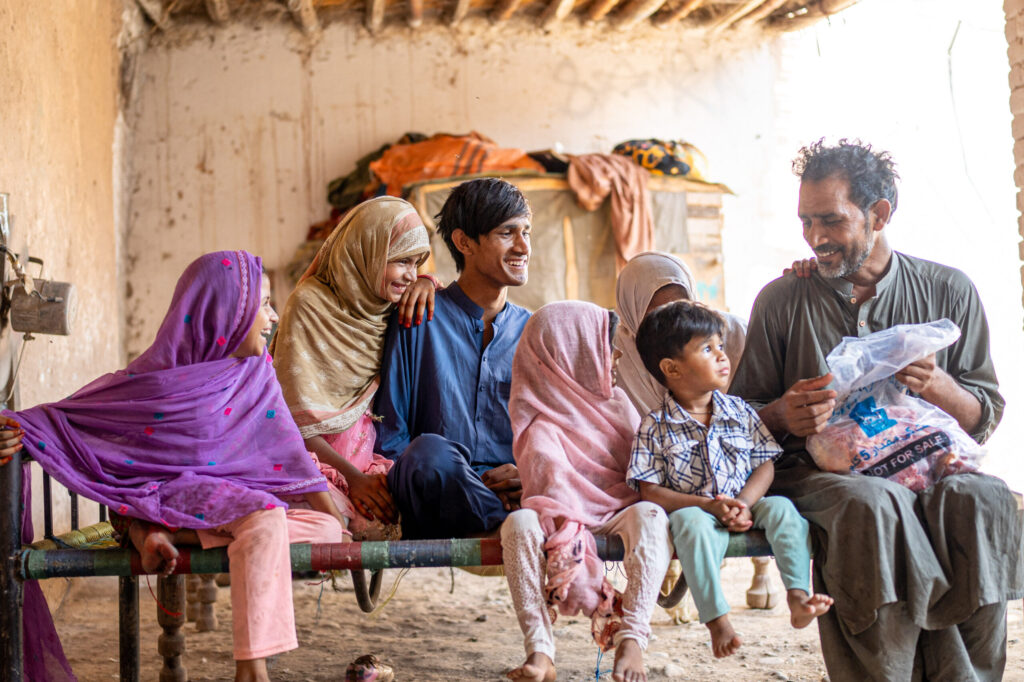
Our international teams work hard to get your donation to the most hard-to-reach regions and conflict-affected areas, including Sudan, Afghanistan and more. Where we cannot perform Qurban, we still provide meat packs and food packs to our brothers and sisters in need worldwide, including in Gaza.
Typically, meat is sourced locally in order to support the local economy and distributed fresh, though, in difficult situations like conflict zones, we may send frozen meat so it can arrive to our recipients in good condition. Each Qurban feeds a family of approximately 4-8 people.
All logistics—from sacrifice to transportation—are handled in accordance with Islamic principles, and with the best hygienic practices possible. When you give Qurban with Islamic Relief, we considered it our Amanah. To deliver it with Ihsan and with the highest standards of compliance.
This Dhul Hijjah, Share Your Blessings
Help the world’s most vulnerable families enjoy their Eid when you give Qurban with Islamic Relief.

